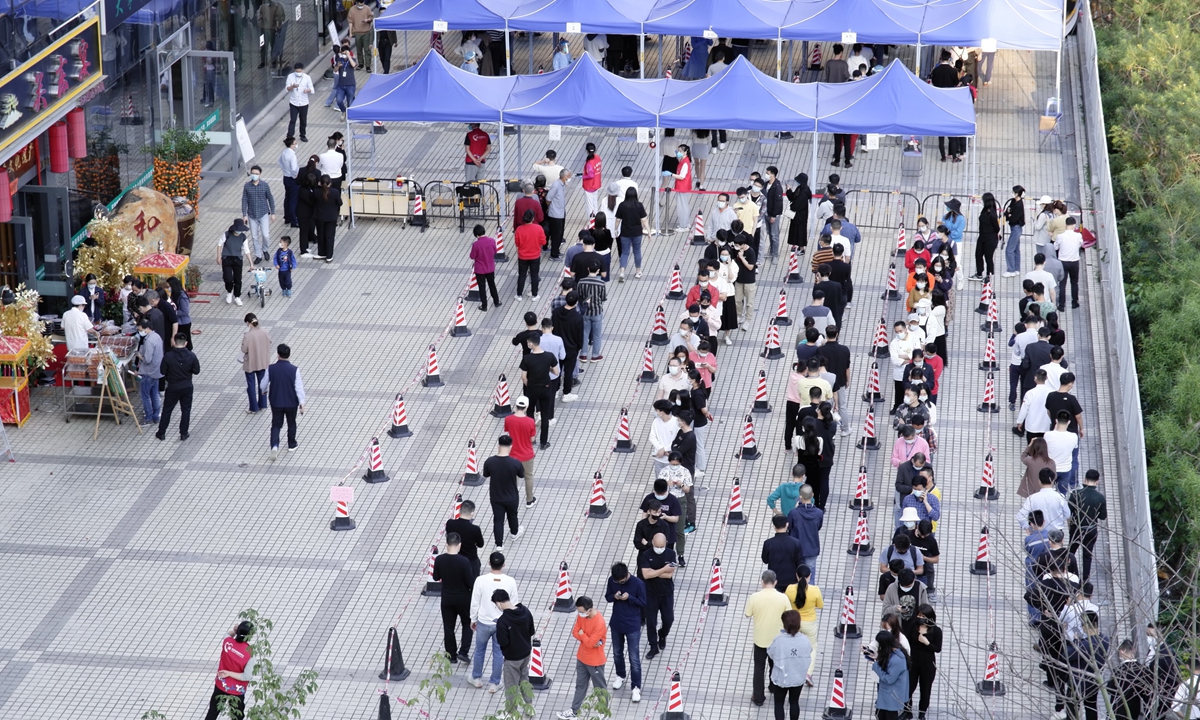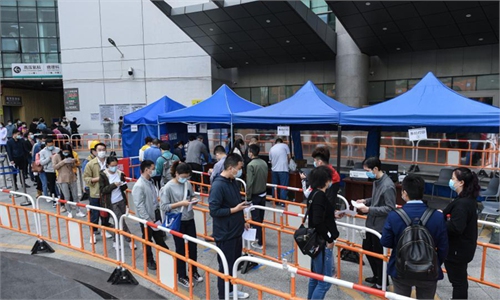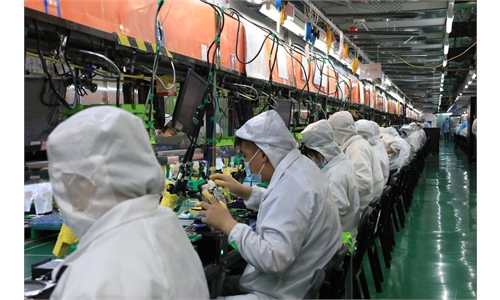
Residents line up for free nucleic acid testing at the special Information Port in Nanshan District of Shenzhen, South China's Guangdong Province. Shenzhen reports 66 local infections on March 13, taking up the total number to 432. Photo:IC
China's tech hub Shenzhen in South China's Guangdong Province, which has recently witnessed a new round of COVID-19 flare-up, will greenlight enterprises to resume work and production in an orderly manner based on epidemic prevention and control considerations, an official said on Thursday.
"At present, the epidemic prevention and control situation is improving, and Shenzhen is pushing forward the resumption of work and production in an orderly manner and by location and classification," Huang Qiang, deputy secretary general of the Shenzhen municipal government, said at a press conference on the city's epidemic situation.
In light of the recent COVID-19 outbreak in the city, many business operations have been affected, with some having suspended work temporarily or cut down activities to stop the spread of the virus.
According to Huang, nucleic acid testing for all residents in Shenzhen is progressing on schedule. The majority of confirmed cases were found in containment areas and isolation sites during nucleic acid screening.
"The number of newly detected cases in the communities has dropped significantly and remained in single digits for two consecutive days, with some districts reported zero new cases. The supply of daily necessities in the city is sufficient, prices are stable, and the overall situation of epidemic prevention and control is stable and controllable," said Huang.
The city will strengthen services for enterprises, guide them in implementing anti-epidemic efforts, including disinfection of factory workshops and temperature checks, and take various measures to address practical problems such as labor, capital and raw material supply.
Global Times



